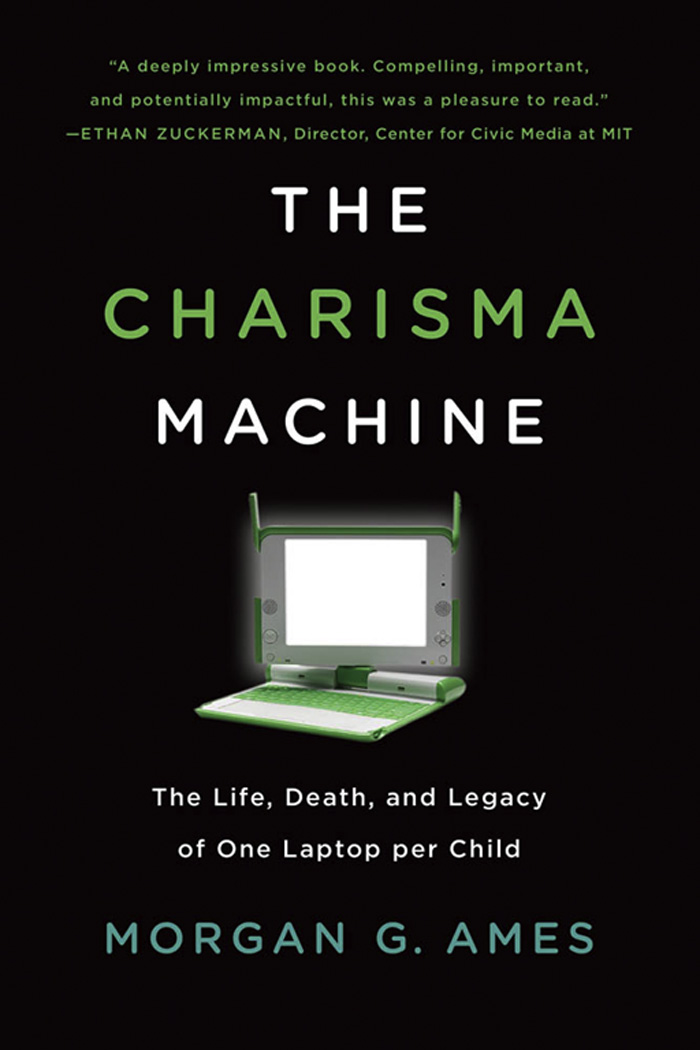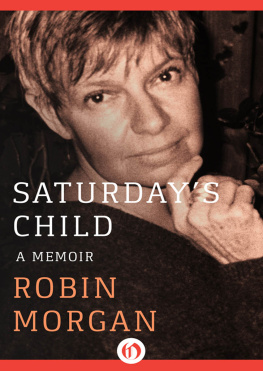Morgan G. Ames - The Charisma Machine: The Life, Death, and Legacy of One Laptop per Child
Here you can read online Morgan G. Ames - The Charisma Machine: The Life, Death, and Legacy of One Laptop per Child full text of the book (entire story) in english for free. Download pdf and epub, get meaning, cover and reviews about this ebook. year: 2019, publisher: MIT Press, genre: Romance novel. Description of the work, (preface) as well as reviews are available. Best literature library LitArk.com created for fans of good reading and offers a wide selection of genres:
Romance novel
Science fiction
Adventure
Detective
Science
History
Home and family
Prose
Art
Politics
Computer
Non-fiction
Religion
Business
Children
Humor
Choose a favorite category and find really read worthwhile books. Enjoy immersion in the world of imagination, feel the emotions of the characters or learn something new for yourself, make an fascinating discovery.

- Book:The Charisma Machine: The Life, Death, and Legacy of One Laptop per Child
- Author:
- Publisher:MIT Press
- Genre:
- Year:2019
- Rating:3 / 5
- Favourites:Add to favourites
- Your mark:
- 60
- 1
- 2
- 3
- 4
- 5
The Charisma Machine: The Life, Death, and Legacy of One Laptop per Child: summary, description and annotation
We offer to read an annotation, description, summary or preface (depends on what the author of the book "The Charisma Machine: The Life, Death, and Legacy of One Laptop per Child" wrote himself). If you haven't found the necessary information about the book — write in the comments, we will try to find it.
Morgan G. Ames: author's other books
Who wrote The Charisma Machine: The Life, Death, and Legacy of One Laptop per Child? Find out the surname, the name of the author of the book and a list of all author's works by series.
The Charisma Machine: The Life, Death, and Legacy of One Laptop per Child — read online for free the complete book (whole text) full work
Below is the text of the book, divided by pages. System saving the place of the last page read, allows you to conveniently read the book "The Charisma Machine: The Life, Death, and Legacy of One Laptop per Child" online for free, without having to search again every time where you left off. Put a bookmark, and you can go to the page where you finished reading at any time.
Font size:
Interval:
Bookmark:

Infrastructures Series
Edited by Geoffrey C. Bowker and Paul N. Edwards
Paul N. Edwards, A Vast Machine: Computer Models, Climate Data, and the Politics of Global Warming
Lawrence M. Busch, Standards: Recipes for Reality
Lisa Gitelman, ed., Raw Data Is an Oxymoron
Finn Brunton, Spam: A Shadow History of the Internet
Nil Disco and Eda Kranakis, eds., Cosmopolitan Commons: Sharing Resources and Risks across Borders
Casper Bruun Jensen and Brit Ross Winthereik, Monitoring Movements in Development Aid: Recursive Partnerships and Infrastructures
James Leach and Lee Wilson, eds., Subversion, Conversion, Development: Cross-Cultural Knowledge Exchange and the Politics of Design
Olga Kuchinskaya, The Politics of Invisibility: Public Knowledge about Radiation Health Effects after Chernobyl
Ashley Carse, Beyond the Big Ditch: Politics, Ecology, and Infrastructure at the Panama Canal
Alexander Klose, translated by Charles Marcrum II, The Container Principle: How a Box Changes the Way We Think
Eric T. Meyer and Ralph Schroeder, Knowledge Machines: Digital Transformations of the Sciences and Humanities
Sebastin Ureta, Assembling Policy: Transantiago, Human Devices, and the Dream of a World-Class Society
Geoffrey C. Bowker, Stefan Timmermans, Adele E. Clarke, and Ellen Balka, eds., Boundary Objects and Beyond: Working with Leigh Star
Clifford Siskin, System: The Shaping of Modern Knowledge
Lawrence Busch, Knowledge for Sale: The Neoliberal Takeover of Higher Education
Bill Maurer and Lana Swartz, eds., Paid: Tales of Dongles, Checks, and Other Money Stuff
Dietmar Offenhuber, Waste Is Information: Infrastructure Legibility and Governance
Katayoun Shafiee, Machineries of Oil: An Infrastructural History of BP in Iran
Megan Finn, Documenting Aftermath: Information Infrastructures in the Wake of Disasters
Laura Watts, Energy at the End of the World: An Orkney Islands Saga
Ann M. Pendleton-Jullian and John Seely Brown, Design Unbound: Designing for Emergence in a White Water World, Volume 1: Designing for Emergence
Ann M. Pendleton-Jullian and John Seely Brown, Design Unbound: Designing for Emergence in a White Water World, Volume 2: Ecologies of Change
Jordan Frith, A Billion Little Pieces: RFID and Infrastructures of Identification
Morgan G. Ames, The Charisma Machine: The Life, Death, and Legacy of One Laptop per Child
Mario Biagioli and Alexandra Lippman, eds., Gaming the Metrics: Misconduct and Manipulation in Academic Research
Malcolm McCullough, Downtime on the Microgrid: Architecture, Electricity, and Smart City Islands
Emmanuel Didier, translated by Priya Vari Sen, America by the Numbers: Quantification, Democracy, and the Birth of National Statistics
Ryan Ellis, Letters, Power Lines, and Other Dangerous Things: The Politics of Infrastructure Security
Morgan G. Ames
The MIT Press
Cambridge, Massachusetts
London, England
2019 Massachusetts Institute of Technology
All rights reserved. No part of this book may be reproduced in any form by any electronic or mechanical means (including photocopying, recording, or information storage and retrieval) without permission in writing from the publisher.
This book was set in ITC Stone Serif Std and ITC Stone Sans Std by Toppan Best-set Premedia Limited. Printed and bound in the United States of America.
Library of Congress Cataloging-in-Publication Data
Names: Ames, Morgan G., author.
Title: The charisma machine : the life, death, and legacy of One Laptop Per Child / Morgan G. Ames.
Description: Cambridge, MA : MIT Press, [2019] | Series: Infrastructures | Includes bibliographical references and index.
Identifiers: LCCN 2018050938 | ISBN 9780262537445 (pbk. : alk. paper)
Subjects: LCSH: Laptop computers--Developing countries. | Computers and children--Developing countries.
Classification: LCC QA76.5 .A4255 2019 | DDC 004.1609724--dc23 LC record available at https://lccn.loc.gov/2018050938
10 9 8 7 6 5 4 3 2 1
For Carla
d_r0
This project has made powerfully concrete to me that intellectual development is a profoundly social process. Just as the motivations of the Paraguayan children whom I observed were influenced by their teachers, parents, and friends, my own research trajectory has been deeply influenced by many important people in my life. Indeed, at times it seems strange that research projects have ownership when we all owe so much to our intellectual communities.
First and foremost, I thank my graduate advisor, Fred Turner, for his intellectual guidance. Though our topics, methods, and even writing habits may differ, I have learned so much from him about how to navigate the halls of academe and to produce rigorous, intellectually honest, and (hopefully) insightful researchand work that reflects my own passions. Words cannot express the gratitude I feel for this intellectual and social guidance. My committee has also helped me along this path: Cliff Nass, Jeremy Bailenson, Tanya Luhrmann, and John Willinsky. I especially honor the memory of Cliff, who in many ways was like a second advisor. He hooded me in place of Fred in June 2013 and was always available to provide ever-upbeat and ever-insightful feedback. We miss you, Cliff.
Just as important to this research are my colleagues and participants in Paraguay. My fieldwork there was one of the most challenging and enlightening experiences of my life. The gracious hospitality and support of the employees of Paraguay Educa, especially Pacita, enabled my fieldwork. I also owe so much to my research assistant, Liliana, who not only came along to many of the house visits and interviews to help me with my nonexistent Guaran but scheduled and transcribed many of my interviews, and moreover welcomed me into her home as if I were a member of her family. Her superb local knowledge and many friends made my fieldwork so much easier. I want to thank all of the teachers, students, parents, and others for allowing me to shadow their experiences and for patiently answering my many questions. Geeking out with Bernie, Sebastin, Martn, and the technical team gave me a welcome respite during my time in Paraguay. Bernie also provided a welcome counterpoint to my observations and theories in Paraguay and beyond. I honor the memory of Carla, who was not only my host but my friend. When cancer took her from us much, much too early, it took one of the brightest and most passionate advocates for Paraguayan children.
The lions share of day-to-day support came from my cowriters over the years: ShinJoung Yeo, Daniela Rosner, Lilly Irani, Megan Finn, Lilly Nguyen, Tricia Wang, Lauren Schmidt, Christine Larson, Anita Varma, John Alanz, Mark Gardiner, and more. These incredible scholars joined me to write in cafs and libraries all over the San Francisco Bay Area, and most also offered generous feedback on chapter drafts along the way. I have come to learn that I love to write socially, and this group has seen me through. Equally important was the generous community of scholars who offered feedback on chapters throughout the writing process. The dissertation on which this book is based was honed with the help of the Stanford Humanities Center dissertation writing group, convened by Katja Zelljadt. The two years I spent in this talented, interdisciplinary group gave me countless ideas for how to both broaden my work to appeal to more audiences and deepen it to make it more theoretically impactful. More recently, I have bent the ear of insightful colleagues including Joseph Klett, Matt Rafalow, Amber Levinson, Alicia Blum-Ross, Antero Garcia, Jenna Burrell, Damien Droney, Anne Jonas, Richmond Wong, Noura Howell, Christoph Derndorfer, and Nick Merrill, who all provided constructive feedback on (in many cases) multiple chapters. Finally, Laura Portwood-Stacer of Manuscript Works helped me reframe an early draft, Georgia Saltsman and Charlotte Nix helped me proof the near-final draft, and anonymous reviewers gave me invaluable feedback in between, guided by the encouraging editorial leadership of Katie Helke at the MIT Press.
Next pageFont size:
Interval:
Bookmark:
Similar books «The Charisma Machine: The Life, Death, and Legacy of One Laptop per Child»
Look at similar books to The Charisma Machine: The Life, Death, and Legacy of One Laptop per Child. We have selected literature similar in name and meaning in the hope of providing readers with more options to find new, interesting, not yet read works.
Discussion, reviews of the book The Charisma Machine: The Life, Death, and Legacy of One Laptop per Child and just readers' own opinions. Leave your comments, write what you think about the work, its meaning or the main characters. Specify what exactly you liked and what you didn't like, and why you think so.






